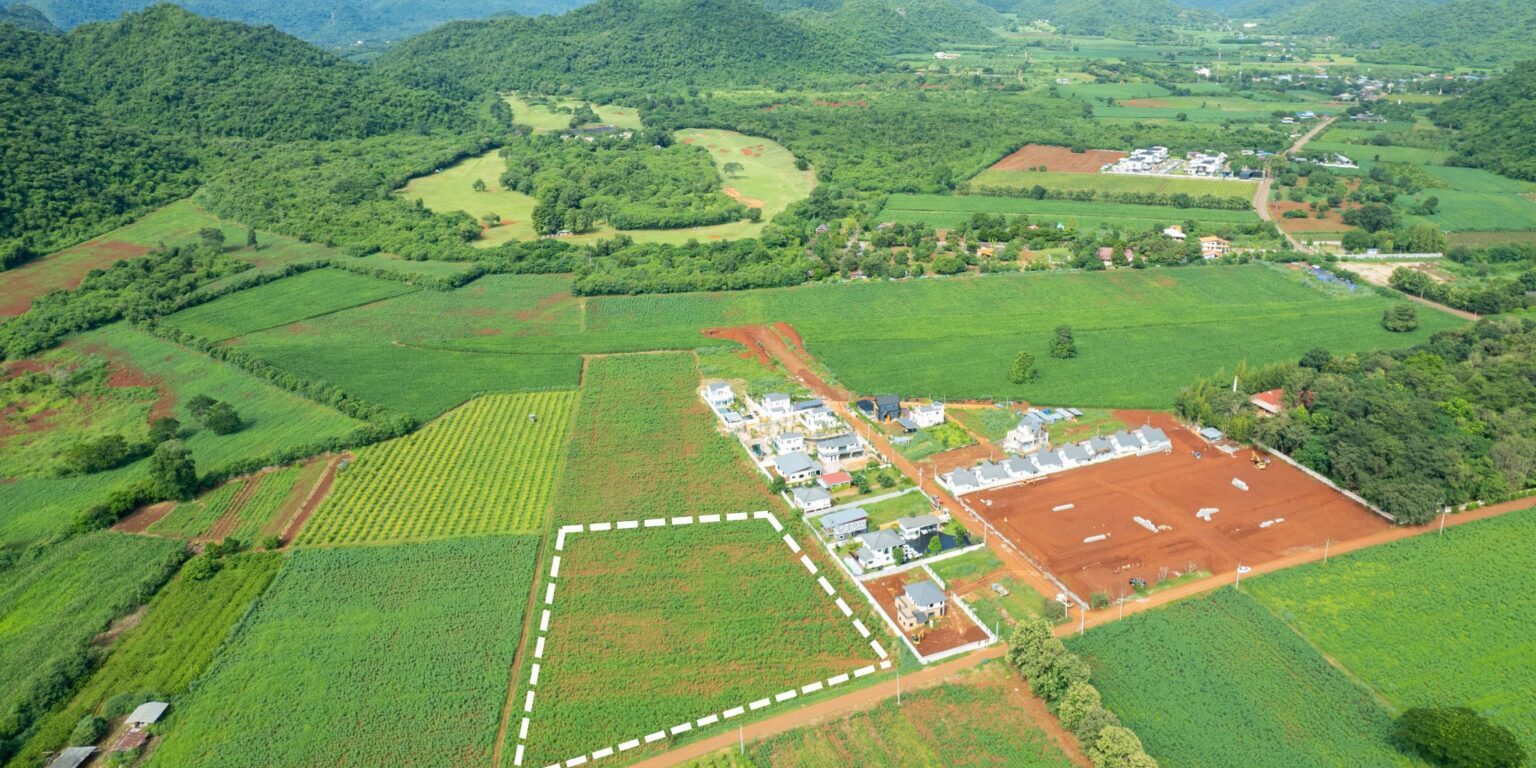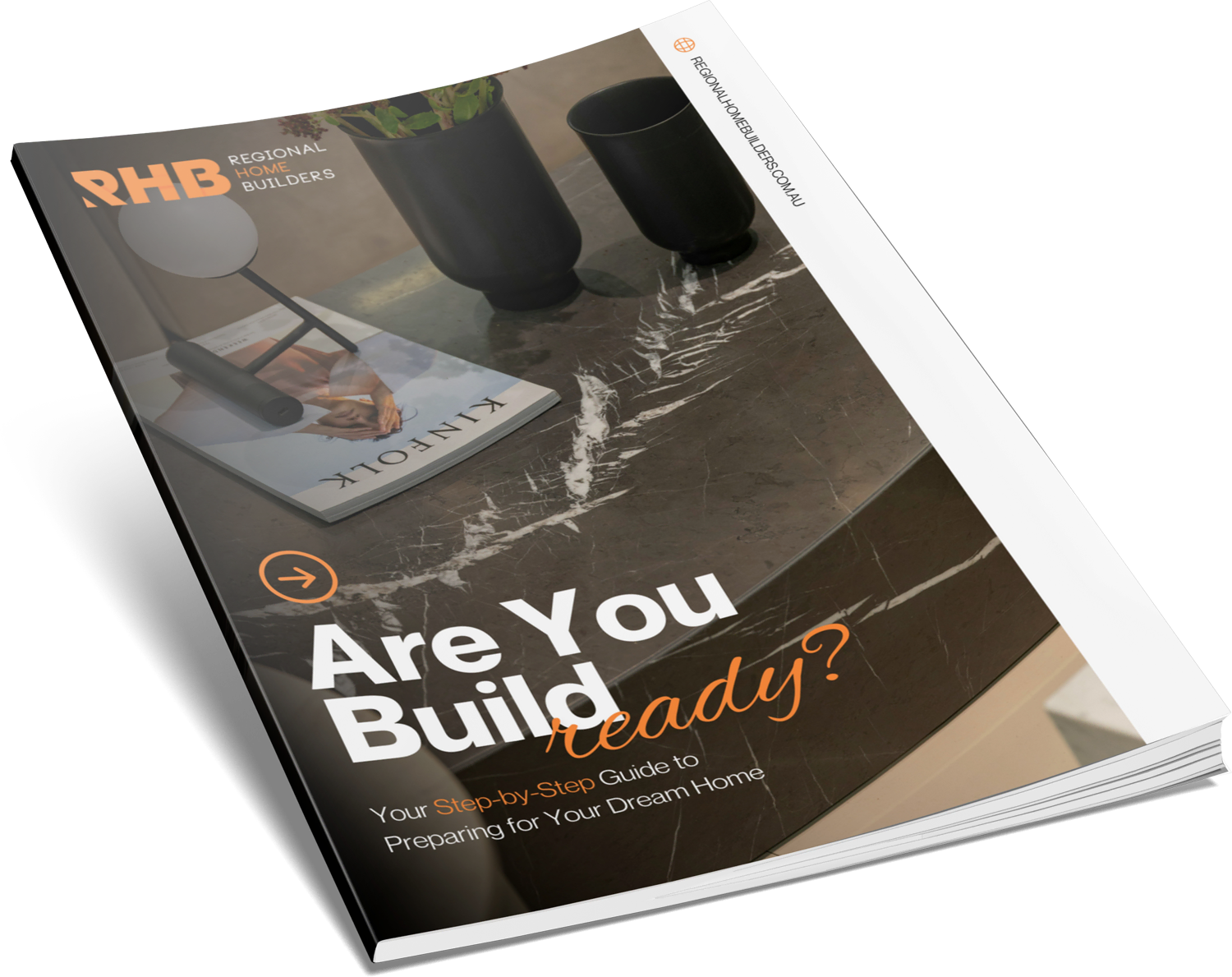Most people start their home-building journey with the exciting part, looking at floorplans, walking through display homes, and saving inspiration pictures. That is all part of the dream, but here is the reality: until a few key pieces are in place, a builder cannot give you meaningful advice or accurate pricing until you know how to properly contact a builder.
At Regional Home Builders, we see this often. People reach out too early, hoping to get clarity on costs or designs, but because land, budget, or timelines are not sorted, the conversation is limited. It can lead to confusion or, worse, disappointment later when the numbers or designs no longer match.
So, what do you need to have ready before contacting a builder? Here is the step-by-step preparation that ensures your first conversation with us is productive and sets you up for a smooth journey.
Land Comes First
Owning titled land, or being very close to settlement, is the single most important thing you need before speaking to a builder.
Why? Because your block dictates almost everything about your home. The slope, soil, orientation, access, overlays, and council requirements all affect what can be built and how much it will cost. Without that information, anything we give you would be based on assumptions, and that is not how we work.
The risk of contacting a builder too early is that you might fall in love with a floorplan or budget that simply does not suit the block you end up purchasing. That often leads to redraws, extra costs, and delays, frustrations that can be avoided if the land is locked in first.
Think of it this way: the block is the foundation, and everything else flows from it.
The Role of Site Conditions
Every block tells a different story. A flat titled block with good access is a completely different build to a sloping site in a bushfire zone, or a block with overlays and setbacks.
Here are just a few of the site factors that shape your build:
- Slope and fall: Impacts foundation type, earthworks, and costs.
- Soil type: Determines engineering requirements for your slab.
- Overlays: Bushfire, flood, or heritage overlays can change design and compliance.
- Orientation: Affects natural light, energy efficiency, and how your home feels.
- Access: Narrow sites or acreage blocks can impact construction logistics.
- Council and estate rules: Setbacks, easements, and developer guidelines must all be met.
This is why securing titled land first is critical. Once we know the site, we can give you advice that is specific, accurate, and practical.
Budget Clarity
Once your land is secured, the next step is setting a clear budget range. You do not need exact figures or final finance approval on day one, but you should have a realistic understanding of what you can spend.
A budget range gives us the framework to guide you toward the right designs, inclusions, and solutions. Whether your range is $400,000 to $600,000 or $700,000 to $900,000, it allows us to be honest about what is achievable and prevent you from wasting time on options outside your reach.
Budget clarity also helps us walk you through the full picture. Many people do not realise how much of the total cost is shaped by site works, council requirements, and post-handover items like driveways, landscaping, and fencing. Our role is to ensure you see the complete cost of finishing your home, not just the base price of the house.
Lifestyle Goals and Non-Negotiables
When it comes to design, you do not need to have a final floorplan ready. What is far more valuable is clarity about how you want to live in your home.
Think about your lifestyle:
- Do you need a home office, a second living area, or space for entertaining?
- How many bedrooms and bathrooms suit your family now and in the future?
- Is outdoor living or energy efficiency a priority for you?
- Do you have non-negotiables, like a butler’s pantry or larger garage?
Bring your inspiration,Pinterest boards, sketches, or images of homes you love. We can translate those ideas into a design that suits your block, your budget, and your lifestyle.
Timeline and Readiness
Having a sense of your timeline is just as important as land and budget. Are you hoping to move in within the next 12 months, or is this a longer-term plan? Timelines shape finance approvals, selections, permits, and the build schedule itself.
Equally important is being ready to engage in the process. Building a home involves far more than choosing a floorplan. You will need to review documents, make selections, and work with our team on approvals and finance. The more organised you are, the smoother it will run.
What to Bring to Your First Conversation
When you are ready to contact us, having the right documents on hand will make your first meeting far more productive. If possible, bring:
- Your land contract or lot number
- Any developer or estate guidelines
- Site information you may already have, such as soil tests or surveys
With this information, we can move from general advice to a tailored plan specific to you.
If You Are Not Quite Ready to Contact a Builder
If you do not have land secured or a budget range in place, it is too early to begin discussions with a builder. These two elements are the foundation of everything that follows.
Your first step should be to work with a broker or lender to understand your borrowing power, and to secure a block of land that is titled or close to titling. Only once those two pieces are in place can we assess your site, provide accurate recommendations, and guide you through design and construction with confidence.
Approaching a builder earlier than this often leads to frustration, because without land and finance, there is no way to confirm costs, designs, or timelines. To set yourself up for success, focus on securing land and budget first, then we can step in and help you bring your new home to life.
Setting Yourself Up for Success
The more prepared you are, the better your experience will be. That does not mean having every answer, but it does mean knowing where you are at.
If you have secured land or are close to titling, have a clear budget range, and know your lifestyle goals, you are ready to take the next step. From there, we can help you move forward with clarity and confidence, guiding you toward a home that is not only possible but perfectly suited to you.
Explore the story of Regional Home Builders. Regional Home Builders is a proud member of APB and MBA.



